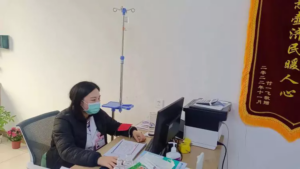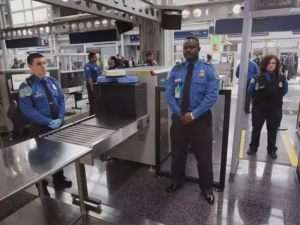
What should I do if my child has a sore or dry throat after a new crown infection? What are the conditions that require medical attention as soon as possible?
What should I do after a child has a new crown infection? How to take care of them at home, how to use medication safely, and how to determine when they need to be taken to the hospital for treatment?
On the evening of Dec. 28, “Building a Rainbow Bridge – Scientific Lecture on Protection and Treatment of Neonatal Infection in Children” was held online by Shanghai Medical Association and Pediatric Branch of Shanghai Medical Association. Several physicians and nurses from the Pediatric Hospital of Fudan University, Xinhua Hospital of Shanghai Jiao Tong University School of Medicine, Children’s Hospital of Shanghai Jiao Tong University School of Medicine and Shanghai Children’s Medical Center of Shanghai Jiao Tong University School of Medicine shared the prevention, treatment and care of children with neonatal coronary.
When children are infected with Neocon, they have fever in the first three days, and around 4-7 days, they mainly have respiratory problems and maybe some vomiting and diarrhea and other gastrointestinal problems. Respiratory symptoms are mainly manifested as 6 major problems: cough and sputum, stuffy nose and runny nose, dry throat and sore throat, hoarseness are 4 high frequency problems, wheezing and shortness of breath are relatively less, but the problems appear more serious.
Experts warn that parents need to pay extra attention to febrile convulsions and laryngitis after children are infected with the new crown. Parents should remain vigilant for children with poor mental health, vomiting and lethargy, and frequent convulsive episodes. For children under three months of age with inexperienced parents, it is recommended to seek prompt medical attention for evaluation and guidance by a physician if the child develops fever, poor mental health, and cold hands and feet.
Based on the recent consultation, the physician has answered questions related to parents’ concerns.
- Why does my child have a severe cough after a new coronavirus infection? Is the cough after a new coronavirus infection the same as a common cold cough?
Why is there a cough? The new coronavirus attacks the mucous membrane of the respiratory tract and causes damage to the airway, which takes time to recover. At the peak of inflammation, mucus secretions such as nasal mucus and phlegm increase, and this mucus accumulates in the airway, irritating it and causing a cough. The cough is partly dry and becomes wet in later stages because of increased secretions.
Because of the neurotropic nature of the neocoronavirus and its tendency to cause neuropathic and inflammatory changes, such as hyposmia or hypoesthesia, which is actually pathological damage to the vagus nerve, coughs caused by the neocoronavirus can be more severe and persistent than coughs caused by colds or flu-related infections.
Cough suppressants, both peripheral and central, can usually be used. In the acute phase of neocon cough, cough suppressants (forcodine, dextromethorphan) alone should not be used, but need to be combined with antihistamines (chlorpheniramine), decongestants (pseudoephedrine) together with antipyretic and analgesic drugs (Merlin, Tylenol) in the febrile phase.
- Can I use phlegmolytic drugs or even antibiotics for cough with sputum?
New crown infection leads to increased mucus secretion and sputum is usually white, although if white sputum is abundant and can be easily coughed out, you may not add phlegm-suppressing drugs. If the color of the sputum changes and the white sputum turns into yellow or even golden yellow sputum, it may be a viral infection followed by a bacterial infection, so antibiotic treatment is needed, and you can choose penicillin or cephalosporins, and a course of treatment for 5 days is sufficient.
- Is there a major health problem if I find blood in the sputum when I cough?
If coughing up blood has not occurred in the past and this time it occurs after a new crown infection, blood in sputum and blood on the surface of sputum is just mucosal damage, there is no need to be nervous, just observe it.
Blood and sputum are mixed evenly, coughing up blood is from the lower respiratory tract, and it may be fine bronchial or alveolar, which needs to be observed intensively.
If the amount of coughing blood continues to increase and is bright red, it is recommended to go to the hospital for relevant examination.
- What should I do if my child develops nasal congestion/runny nose after contracting a new crown?
(1) Change the sleeping position: Before going to bed at night, parents can help their children to put the pillow higher or change to side sleep to relieve nasal congestion.
(2) Steam the nose: Pour a cup of hot boiling water, let the child put his nose on the mouth of the cup, inhale the hot steam and keep it for about 2~5 minutes. This can reduce the congestion and edema of the nasal mucosa, thus reducing secretions. When using it, pay attention to keep the distance to avoid the hot air to burn the nasal cavity.
(3) nasal passage exercise: rub both sides of the bridge of the nose up and down for 1 minute, rub both sides of the nasal root for 1 minute, press the Yingxiang point for 1 minute, and wasp into the hole for 1 minute.
(4) Nasal wash: You can wash your nose with saline to help relieve nasal mucous membrane edema and promote the discharge of secretions, thus relieving the symptoms of nasal congestion. It is recommended to go to the pharmacy to buy 0.9% saline, it is not advocated to prepare at home itself. Noseclean/Feiyang Lekang nasal wash, especially suitable for those with increased nasal discharge.
5、What should I do if my child has a sore throat and dry throat after contracting the new crown?
(1) Drink more water appropriately. Drinking water helps to relieve sore throat and also keeps the mucous membrane of the pharynx moist, which absorbs phlegm to a certain extent and facilitates the discharge of sticky phlegm.
(2) Gargle with hypertonic saline. Take about 5-6 grams of table salt (equivalent to the size of a beer bottle cap) and put it into 250 ml of warm boiled water to dissolve it fully, and it will be configured as hypertonic saline for gargling.
(3) Take throat lozenges. Viruses usually enter the body through the nasal cavity or throat, when containing lozenges, more saliva will be distributed in the mouth, helping to inhibit the microorganisms in the throat.
(4) Topical cold compresses. Local cold compresses can also help to reduce the pain of the throat, appropriate to eat some icy food, such as ice-cream. It can reduce the swelling and provide pain relief.
(5) There is another method that has immediate effect and does not require any equipment, pressing the Hegu point (alias: tiger’s mouth). This point is effective for head and facial pain, headaches, painful mouth ulcers, sore throats, and tooth pain. It is at the intersection of the thumb and index finger after they have been opened internally. Pressing it 20 to 30 times will cause a sore feeling and the pain will be relieved naturally.
- What should I do if my child has a hoarse voice after contracting a new crown?
If your child has difficulty breathing, hoarse voice and barking cough, you may have a laryngeal obstruction. There are four degrees of laryngeal obstruction. In severe cases, such as suprasternal fossa, intercostal space, and supraclavicular fossa, the inspiration is concave and very obvious, which must be sent to the doctor, and the vein may have to be opened immediately, and in severe cases, a tracheotomy may be required, otherwise it will be life-threatening.
For the first and second degree of laryngeal obstruction, there is no difficulty in breathing, only hoarseness, and there are nebulizing machines and drugs at home, you can first nebulize inhalation treatment. Inhaled glucocorticoids (budesonide) are recommended. The drug can act directly on the airway mucosa by inhalation, which has an anti-inflammatory and anti-swelling effect locally. If hoarseness and barking cough do not improve, it is still necessary to visit the hospital.
- What should I do if my child has shortness of breath after a new crown infection?
New coronavirus can cause lower respiratory tract infections in combination with common respiratory syncytial viruses, influenza viruses, and parainfluenza viruses. Neocoronavirus is only one of the “culprits”, but the power of mixed infections should not be underestimated. If you have shortness of breath, you need to seek immediate medical attention.
8、How to recognize when a child has a convulsion?
Children have generalized or partial limb tonicity or jerking, eye fixation, foaming at the mouth, and incontinence of urine and stool. Most of them last 1-3 minutes and resolve on their own, with a brief loss of consciousness after the convulsions stop. The symptoms of neonatal convulsions are atypical and often manifest as brief breath-holding, purple-holding, and eye gazing. Most febrile convulsions occur during the period of rising body temperature, and children with a history of convulsions are promptly given oral antipyretics.
Strong painful stimulation is not recommended during febrile convulsions, do not press the limbs hard, the child lies flat on his back with his head on one side to prevent vomit from choking into the respiratory tract, and guard the child well to prevent falling from bed, falls and trauma. Convulsions, drowsiness, persistent high fever should be promptly referred to the doctor.
9、Can mothers with NICU breastfeed?
There is no evidence that NCCV can be transmitted through breast milk.
If breastfeeding, mothers need to wear N95 masks, good hand hygiene, does not exclude the possibility of airborne infection. If the mother is pumping and the uninfected family member is bottle-feeding, the mother should practice hand hygiene and wear an N95 mask during the pumping process. The mother is tested negative twice by nucleic acid test (24h interval), she can breastfeed directly and her newborn has low risk of infection.
10、What are the precautions for medication for children?
Parents should first observe the child’s mental state and should not use medication as soon as the child has a cold or fever. Theoretically, children cannot use adult medicines and cannot break them into small amounts because adult medicines may contain ingredients that are prohibited for children. If only adult medication is available and the medication lacks therapeutic parameters for children, it should be used under the guidance of a professional pharmacist.
11、What are the conditions that need to take the child to the doctor as soon as possible?
(1) Children younger than 3 months old, as the symptoms are not typical for too young babies and the disease progresses quickly.
(2) High fever for more than 3 consecutive days.
(3) Poor mental status, depression, lethargy, etc.
(4) Vomiting is obvious, and high fever and cramps.
(5) Other conditions that parents cannot judge.


Average Rating